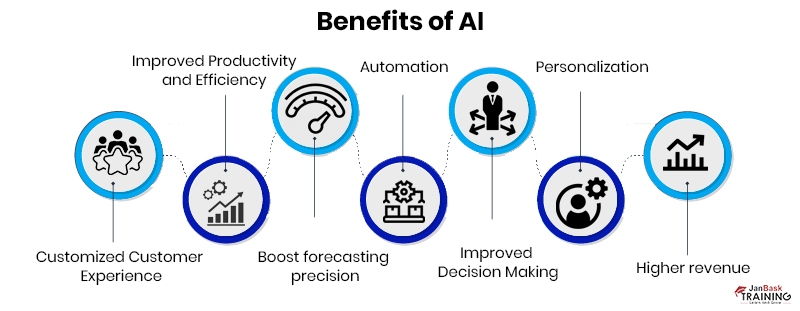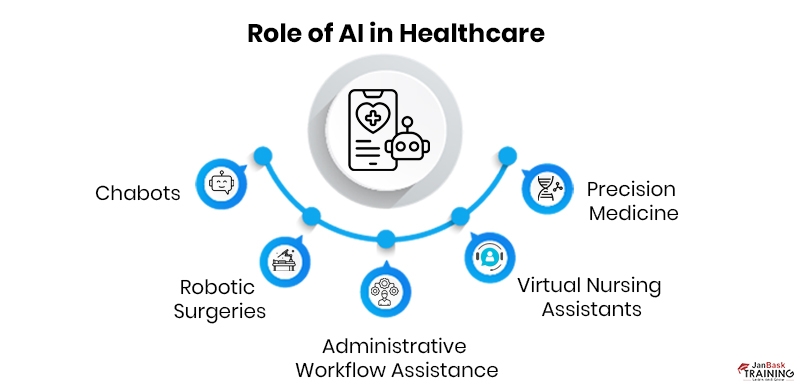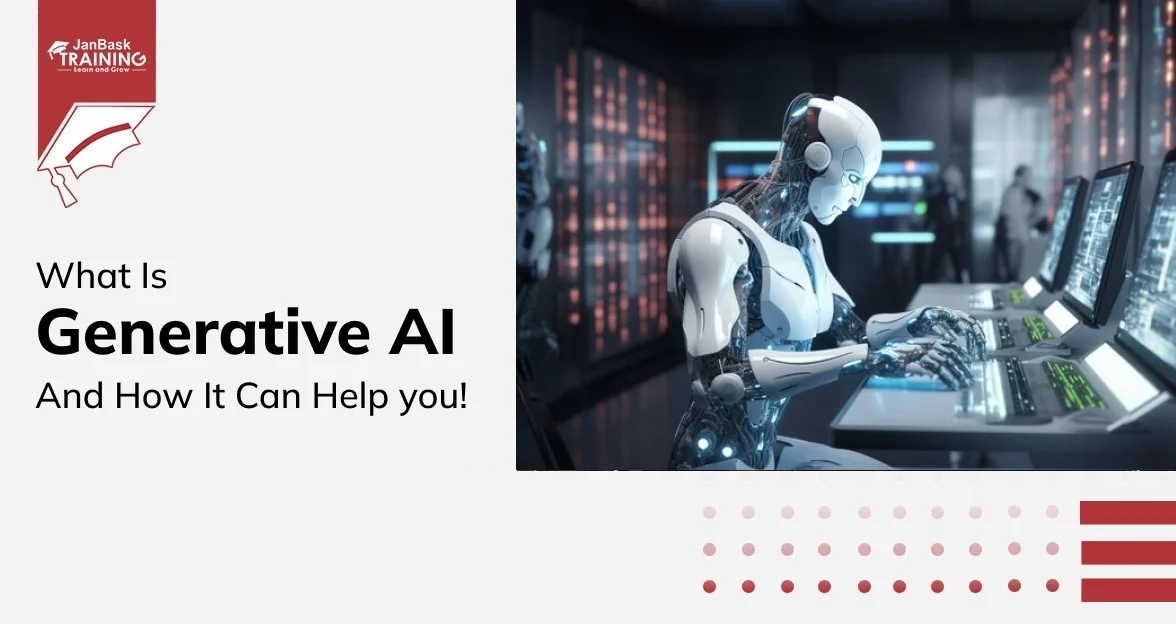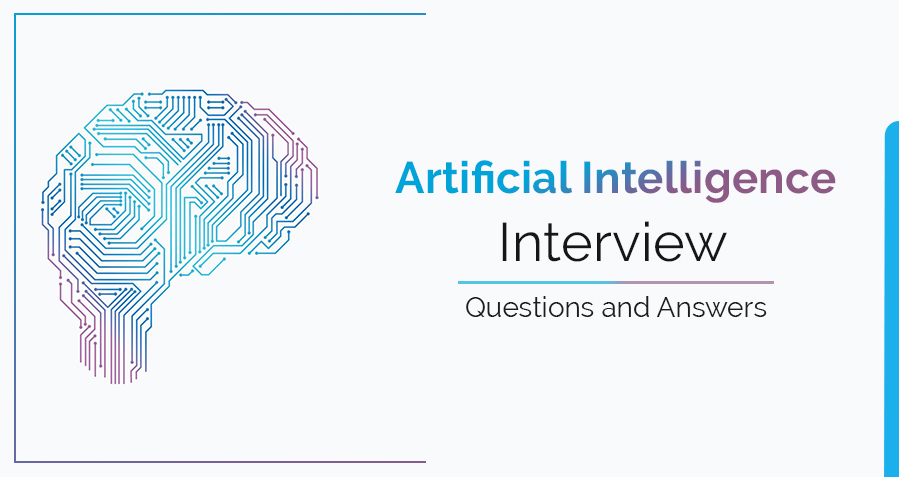Introduction
Summary: With the rise of Artificial Intelligence (AI), entrepreneurs, doctors, customers, and businesses have discovered new opportunities to automate tasks, reduce costs, and increase productivity. AI-powered systems can help process data quickly, accurately identify patterns, and make decisions faster than ever before. It is, therefore, essential for anyone looking to take advantage of the benefits of AI to understand how it works and what potential applications are available. In this blog, we’ll explore the key benefits of AI and what you need to know in order to unlock them.
Have you ever stopped to think how Artificial Intelligence (AI) has completely transformed our thinking, living, and working? It’s mind-boggling, and it’s not just a futuristic concept anymore – it is a reality we live in daily!
From smart assistants that manage our schedules to algorithms that predict our preferences, AI is making our lives more convenient, efficient, and interesting than ever. But the benefits of AI do not stop there. Its impact reaches far beyond consumer applications.
What’s more, the benefits of AI in business are apparent across industries and include cost savings, operational efficiency, enhanced customer experiences, and more. If you look closely, you will realize its tremendous potential. So, let’s dive in to learn Artificial Intelligence and explore its profound impact on our lives.
What is Artificial Intelligence And How It Is Revolutionizing The Industry?
Artificial Intelligence (AI) is a technology that has transformed industries and has become an integral tool for businesses today. It refers to the simulation of human intelligence in machines programmed to think, reason, recognize patterns, and make decisions similar to humans.
The impact of AI cannot be ignored, as it is revolutionizing how industries operate and how we interact with technology. The AI market is expanding rapidly, with forecasts predicting its worth to reach almost 191 billion dollars by 2025, expanding at a compound annual growth rate of over 36%.
The benefits of AI are enormous, including cost savings, faster and more reliable decision-making, and improved customer service, among others. With its continued growth and integration in various sectors, AI is helping us achieve new heights in innovation and productivity. These units are set to impact the world's GDP, with predictions indicating it is set to increase by 14% to 15.7 trillion dollars by 2030.
Benefits Of Artificial Intelligence
Artificial intelligence has the capacity to operate continuously 24*7, without fail. Additionally, AI may be applied internationally and in various markets, enabling the adoption of intelligent solutions everywhere.
What exactly are the benefits of ai, even though there are countless advantages to technology? Is the future of ai brighter than we think?

1. Artificial Intelligence can solve of Complex Problems
Businesses have developed an intense focus on the advancement of AI and their massive investments in the field has contributed to important developments. With the emerging technologies AI now uses machine learning and deep learning models to solve all the challenging and complex problems.
2. AI Can Help Boost Global Education
Every person learns at their own speed and develop their own unique ways to do so. The existing educational framework and methods, techniques are effective, but not for all students as it cannot cater to everyone's individual needs in order for kids to study effectively. AI is advantageous to education in this sense.
Making effective lesson plans or customized curriculum can also be achieved using AI technologies.
3. Automation Results from Artificial Intelligence
Automation is one of the major advantages of Artificial Intelligence. Automation, according to IBM, is the use of software, hardware, or robotics to produce results with little or no human involvement. Automation has had a big impact on sectors including transportation and communications. It benefits both the service and computer product industries.
4. Using artificial intelligence, errors can be reduced
AI minimizes errors, improving the probability of accuracy and precision. Intelligent machines use specific algorithms to make exact conclusions based on the historical data they have gathered throughout time.
5. AI Supports Data Analysis and Research
The practical application of AI in research and data analysis is one of its main advantages. Artificial intelligence may help with data analysis in every business, but it shouldn't be a surprise that science stands to benefit the most from this technology. Artificial intelligence can aid researchers in identifying patterns and findings in data that might have otherwise been difficult to identify. AI doesn’t just aid in data extraction and analysis but is also useful in pattern recognition and scenario planning.
6. AI Can Assist People in Making Quicker and Smarter Decisions
Human thought and emotion frequently affect the ability of decision-making. Artificial intelligence, on the other hand, only uses data and logic to make decisions, taking no account of any kind of emotion. As a result, another advantage of artificial intelligence is that it can help individuals make decisions more swiftly and wisely.
7. AI Can Aid in Environmental Preservation
One of the numerous advantages of artificial intelligence is that it may contribute to environmental preservation and protection. Robotics and artificial intelligence have the potential to greatly improve recycling systems all around the world.
8. Application of AI in Healthcare
The use of AI techniques is widespread in the medical industry. For instance, AI-powered medical equipment has aided clinicians in assessing patient health information and risk factors. Patients benefit from knowing the negative effects of certain medications. Robotics is also utilized to treat patients with mental illnesses like depression.
9. AI Aids in Taking Care of Repeated Tasks
Repetitive tasks are boring in nature. And with AI's assistance, such tasks can be managed easily. Intelligent machines process information considerably faster and may execute multiple jobs at once to produce the best results. These intelligent machines save many lives and allow humans to focus on more complex duties.
10. AI Assists in Taking Unbiased Decisions
Contrary to humans who are driven by emotion, AI can be relied upon to be rational. . AI's lack of bias ensures accurate decision-making.
11. Improved Customer Retention
Personalized support, prompt responses, and effective solutions are all features of AI-powered systems that can help increase customer retention rates. When questions are immediately addressed, customers feel appreciated, which enhances their overall satisfaction and loyalty.
12. Better Identify Customer Needs and Expectations
Trying to fulfill increasingly high customer satisfaction standards is one of the most difficult issues in customer service. Even if you do a good-paying job, it is never enough.
Personalization can be difficult. What information do you have about what they require? How do you know what clients are interested in? How do you know what they're searching for? By incorporating AI into your customer service operation, you will be able to identify better consumer wants and expectations than ever before.
13. Easier Performance Tracking
Performance monitoring and measurement are crucial in the workplace to determine how well your team works together.
But occasionally, especially if you're not using the correct tool or using one at all, it may be a laborious effort to make sure you're doing everything you can to boost your team's performance.
Many businesses have seen how artificial intelligence (AI) has the potential to enhance customer service. The customer experience (CX) includes customer service as a critical component. It truly has the power to create or break a company.
You can use the data, graphs, and metrics provided by the AI platform to evaluate your team's performance.
14. Predicting Future Trends
AI is currently used to forecast future trends. For instance, in the fashion sector, AI can be used to forecast the trend of a prominent brand and the style of the fashion aspects associated with the brand.
Businesses can derive a lot from AI-powered customer service systems that offer constant accessibility, personalize interactions, cut expenses, and enhance decision-making. Increasing the effectiveness of addressing customer requests can have a favorable impact on customer satisfaction and retention rates. Businesses can use AI to set themselves apart from the competition and enhance their reputation for superior customer service.
15. Customized Customer Experience
Businesses may learn how to stand out to customers by improving the customer experience. They may achieve this by providing data-driven, tailored product and content recommendations, AI-assisted discussion, targeted personality-based marketing, and faster customer response times.
Furthermore, there are numerous advantages to employing machine learning as a business analytical tool.
16. Improved Productivity and Efficiency
Increased productivity and efficiency are two of the most frequently highlighted benefits of incorporating AI in enterprises. The speed and scale with which technology completes tasks exceed that of humans. Meanwhile, by taking over duties that machines can't manage, AI frees up human workers to focus on higher-value professions that machines can't. This allows firms to utilize the skills of their human resources while lowering the costs associated with completing mundane, recurrent operations that technology can manage.
17. Boost forecasting precision
Reducing human error is possibly AI's most significant business benefit. Cash flow forecasting is time-consuming and prone to human error activity that is critical to a company's success. AI technology can assist a firm in automating objective forecasting without the need for human intervention. As a result, businesses better grasp their upcoming financial status, allowing them to make more informed decisions and proceed with their objectives.
18. Automation
Automating repetitive and boring tasks that would otherwise need a lot of human effort is one of the main advantages of AI technologies. Businesses stand to gain from this automation by saving time and money.
19. Improved Decision Making
AI helps organizations decide wisely by examining massive data sets and obtaining current insights. These insights can aid companies in streamlining operations, increasing consumer satisfaction, and creating better goods and services.
20. Personalization
AI technologies enable businesses to provide clients with personalized services, which helps raise customer satisfaction levels. Businesses can use AI technologies to provide data-driven insights on consumer behavior and preferences, which can aid in developing personalized products and services for customers.
21. Higher Revenue
Lastly, AI technologies assist organizations in increasing income by utilizing their data to create new goods and services, find new market niches, and use knowledge of consumer behavior to create focused marketing efforts.
Examples Of AI Making A Mark In Various Industries
The promise of the advanced technologies of artificial intelligence (AI) to enhance any industry is tremendously alluring. Governments, tech firms, the Education sector, e-commerce, and healthcare organizations are prepared to invest in and try out AI-powered tools and solutions because they show enough potential. Here are a few examples of AI in various industries:

AI in Healthcare
Artificial Intelligence has made great strides in the healthcare industry in recent years. Its impact can be felt across numerous areas of healthcare, from drug development and clinical trials to diagnostics and personalized patient care. The value of artificial intelligence in the global healthcare sector is expected to reach 23.85 billion USD by 2025, according to a report released by Mordor Intelligence. Statistics also indicate that the sector's CAGR is 39.8% overall. Learn more about the artificial intelligence course online from Janbask’s Official Website.
Artificial Intelligence in Customer Service
AI is utilized in customer service to boost the customer experience and generate more engaging interactions with customers. Chatbots and sentiment analysis can help your support team improve their process, respond rapidly to customer requests, and anticipate customer needs. Experts anticipate that AI-powered digital voice assistant units are set to surpass the global population, with forecasts indicating there will be 8.4 billion of these devices by 2024.
Artificial Intelligence in Education
Artificial Intelligence (AI) has been making its way into various industries, and education is no exception. AI can offer personalized learning experiences, identify weaknesses and strengths in students, and tailor instruction to individual needs. It can also automate administrative tasks, freeing up time for teachers to focus on more complex issues that require their attention.
Artificial Intelligence in Business
AI revolutionizes business processes by improving efficiency, accuracy, and productivity. AI is being utilized to obtain new insights into client behavior, augment human capabilities, and forecast future outcomes. Business leaders have recognized the benefits of using AI, with 84% of C-level executives planning to adapt it to achieve their objectives.
Artificial Intelligence In the E-commerce Industry
Artificial Intelligence has rapidly transformed the global e-commerce industry by revolutionizing online shopping experiences. From personalized recommendations to predictive shipping and intelligent chatbots, AI has enabled businesses to understand their customers better while streamlining their operations. As consumers increasingly demand enhanced convenience and tailored experiences, AI technology has become an indispensable tool for e-commerce platforms. This online artificial intelligence course can help you learn more about using AI for various industries.
Challenges Of Artificial Intelligence
As we progress into the 21st century, Artificial Intelligence (AI) has become increasingly prevalent in approaching technological advancements. As we continue to develop and integrate AI into our daily lives, it is vital that we address the challenges with transparency and diligence:
1. One major drawback of creating machines that can simulate human intelligence is the high cost involved in terms of resources and the latest hardware and software required to keep them updated.
2. AI cannot think creatively as it is limited to learning from pre-fed data. Though there are bots that can write articles like humans, they lack the human touch and creativity present in them.
3. Robots are being employed in certain industries to replace human resources, which, in some cases, can result in unemployment.
4. AI can automate tedious and repetitive tasks, leading to a dependency on technology and making humans lazier in the long run.
5. Incorporating ethics and morality into AI systems has raised significant concerns that it may grow uncontrollably and cause humanity's downfall.
6. Robots, unlike humans, are emotionless and cannot replace the human connection that forms the basis of teamwork. Though they are efficient, they cannot replicate teamwork's success.
How To Make A Career In AI
Advance your Artificial Intelligence and Machine Learning career with JanBask’s comprehensive courses. Through this course, you can gain the skills and required expertise to transform your career and industry and explore your potential. JanBask provides real-world projects to help you gain the industrial experience that is a prerequisite for a flourishing career in the IT industry. Enroll now and explore the limitless possibilities of Artificial Intelligence and Machine Learning through artificial intelligence training.
Conclusion
One cannot simply deny that AI offers a wide range of advantages that can favorably influence various sectors and facets of our lives. Routine jobs can be automated, greater data analysis is provided, decision-making is improved, business processes are optimized, and the entire customer experience is improved, one of the few benefits of AI and how can you learn artificial intelligence.
However, suppose this technology is not regulated or kept in check. In that case, it can impact the human race at a greater cost, such as potential employment displacement and ethical issues, for the starters. You can learn about Artificial intelligence technology and leverage the opportunities it brings with it. You can get artificial intelligence training and certification from numerous online sources for a clear understanding of AI concepts. This blog about artificial intelligence has given you a clearer understanding of this field of study.
FAQs
1. How can AI make our lives better?
Ans: There are several advantages of artificial intelligence in our daily lives. We can already notice advances made by AI technology in the status of the world today and with present technologies. Home assistants like Alexa and Google Assistant make life at home easier. With facial ID/recognition, which is a "simple" AI, our phones unlock. Automation, increased productivity, safety benefits, and other perks are among the major benefits of AI in daily life.
2. What economic benefits does AI provide?
Ans: In order to increase office productivity or boost production, companies can enhance and streamline their processes with the use of artificial intelligence. Using technology may also speed up and improve corporate choices, keep personnel safe and prevent injuries, and develop business contingencies to keep operations running despite unforeseen circumstances. By utilizing AI, businesses may work more efficiently and raise the caliber of their goods and services.
3. What role does artificial intelligence play in modern society?
Ans: Numerous advantages of artificial intelligence have an impact on daily living. Automation is already a really good thing on its own. In addition, AI is already being used in other sectors of the economy. For example, the medical industry is looking at the possibility of employing artificial intelligence to make better diagnoses of illnesses and diseases. The economy and businesses can both gain from AI. Additionally, AI improves weather and natural disaster forecasting.
4. What role does artificial intelligence play in modern society?
Ans: Numerous advantages of artificial intelligence have an impact on daily living. Automation is already a really good thing on its own. In addition, AI is already being used in other sectors of the economy. For example, the medical industry is looking at the possibility of employing artificial intelligence to make better diagnoses of illnesses and diseases. The economy and businesses can both gain from AI. Additionally, AI improves weather and natural disaster forecasting.
5. What are AI's most significant advantages?
Ans: AI's four main advantages are speed, accuracy, efficiency, and scale. You can learn more about why learn ai through the artificial intelligence certification provided by experts.
Artificial Intelligence Course
Upcoming Batches
Trending Courses
Cyber Security
- Introduction to cybersecurity
- Cryptography and Secure Communication
- Cloud Computing Architectural Framework
- Security Architectures and Models
Upcoming Class
1 day 30 Dec 2025
QA
- Introduction and Software Testing
- Software Test Life Cycle
- Automation Testing and API Testing
- Selenium framework development using Testing
Upcoming Class
-0 day 29 Dec 2025
Salesforce
- Salesforce Configuration Introduction
- Security & Automation Process
- Sales & Service Cloud
- Apex Programming, SOQL & SOSL
Upcoming Class
8 days 06 Jan 2026
Business Analyst
- BA & Stakeholders Overview
- BPMN, Requirement Elicitation
- BA Tools & Design Documents
- Enterprise Analysis, Agile & Scrum
Upcoming Class
11 days 09 Jan 2026
MS SQL Server
- Introduction & Database Query
- Programming, Indexes & System Functions
- SSIS Package Development Procedures
- SSRS Report Design
Upcoming Class
11 days 09 Jan 2026
Data Science
- Data Science Introduction
- Hadoop and Spark Overview
- Python & Intro to R Programming
- Machine Learning
Upcoming Class
4 days 02 Jan 2026
DevOps
- Intro to DevOps
- GIT and Maven
- Jenkins & Ansible
- Docker and Cloud Computing
Upcoming Class
4 days 02 Jan 2026
Hadoop
- Architecture, HDFS & MapReduce
- Unix Shell & Apache Pig Installation
- HIVE Installation & User-Defined Functions
- SQOOP & Hbase Installation
Upcoming Class
4 days 02 Jan 2026
Python
- Features of Python
- Python Editors and IDEs
- Data types and Variables
- Python File Operation
Upcoming Class
5 days 03 Jan 2026
Artificial Intelligence
- Components of AI
- Categories of Machine Learning
- Recurrent Neural Networks
- Recurrent Neural Networks
Upcoming Class
19 days 17 Jan 2026
Machine Learning
- Introduction to Machine Learning & Python
- Machine Learning: Supervised Learning
- Machine Learning: Unsupervised Learning
Upcoming Class
11 days 09 Jan 2026
Tableau
- Introduction to Tableau Desktop
- Data Transformation Methods
- Configuring tableau server
- Integration with R & Hadoop
Upcoming Class
-0 day 29 Dec 2025

























